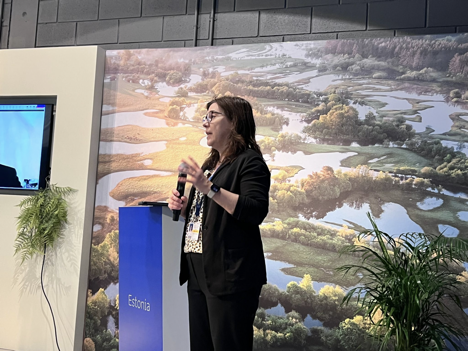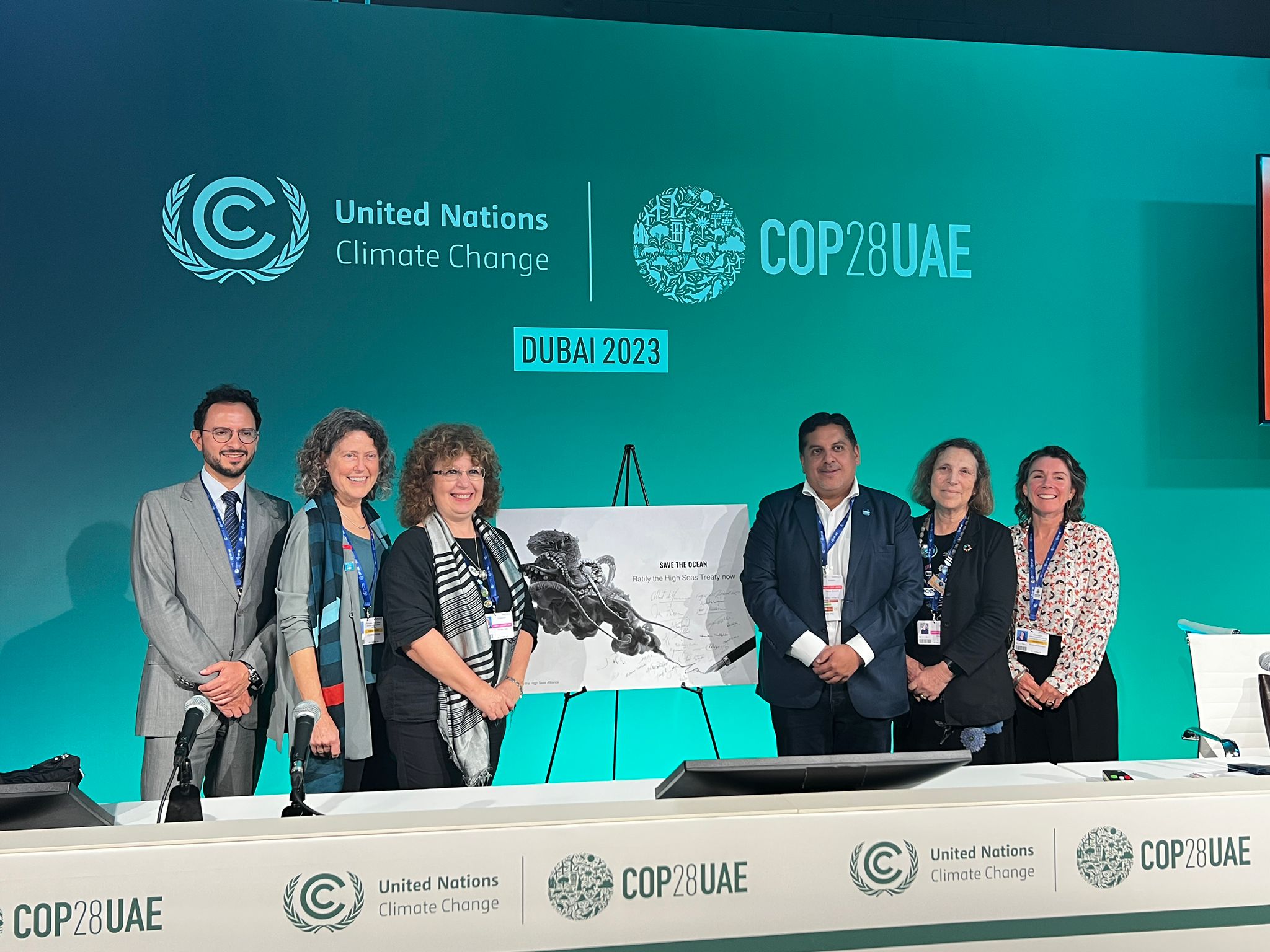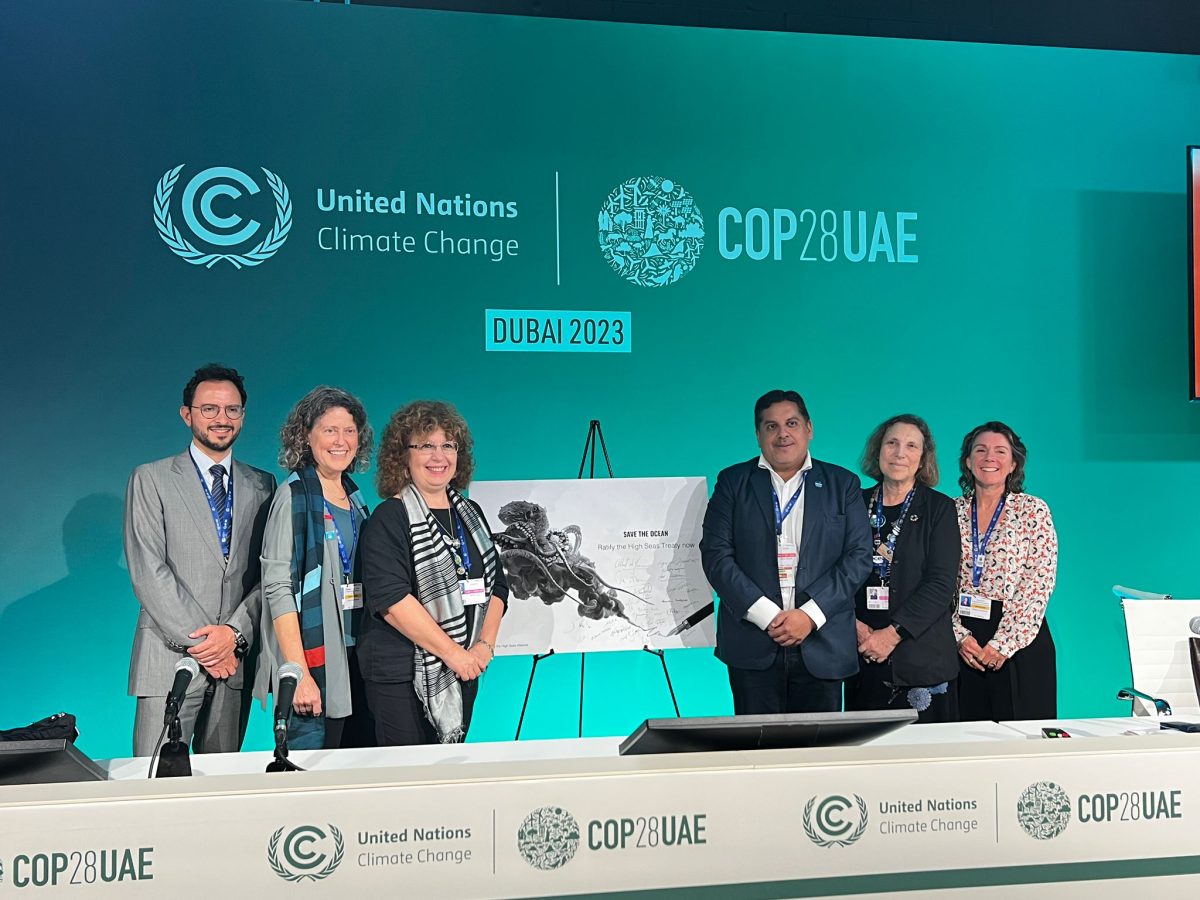Rutgers University researchers in law, anthropology, geography, policy, and sociology joined diplomats, activists, and industry representatives to work toward solutions to the climate crisis at the 28th annual assembly of signatory nations to the pivotal UN Framework Convention on Climate Change, signifying a collective effort to address the pressing climate crisis which concluded on December 13, 2023. These RCEI faculty affiliates included Danielle Falzon (Sociology), Pamela McElwee (Human Ecology), Cymie Payne (Human Ecology), and Jesse Rodenbiker (Geography).

Professor McElwee’s work on the nexus of climate, biodiversity, water, food and health seeks to ensure that climate solutions are designed to maximize co-benefits and minimize trade-offs. As co-chair of the ‘nexus’ assessment of the Intergovernmental Science-Policy Platform on Biodiversity and Ecosystem Services (IPBES), Professor McElwee spoke on several panels about opportunities for financial and governance actors to combine efforts to address the concurrent nature and climate crises (watch here).
Professor Payne spoke on several panels (available here and here) emphasizing the critical role of the global ocean in managing climate and biodiversity threats. Her insights are drawn from her work, as chair of the International Union for Conservation of Nature, Ocean Law Specialist Group, on the High Seas Biodiversity Treaty and cases before international courts clarifying governments’ legal obligations for climate change. Professor Payne observed, “COP 28 delivered a powerful statement that nations are still willing to cooperate and to seek solutions together. In the current state of global affairs, that can be considered a success. However, achieving climate goals remains remote.”

Professor Rodenbiker’s work focuses on China’s pivotal role in global environmental governance, biodiversity conservation, and displacement. Professor Falzon’s work examines the dynamics between nations as they set standards for global adaptation to climate change, as well as obstructive tactics used by wealthy countries on pivotal issues such as loss and damage finance. She primarily observed the contentious Global Goal on Adaptation meetings, where countries struggled to agree on a path forward to ensure that communities around the world are prepared for climate change’s impacts. Falzon notes, “Overall, the negotiations at COP 28 set an important precedent in acknowledging the role of fossil fuel use in contributing to climate change, but many of the decisions made contained weak language that does not ensure the immense and urgent action needed.”




